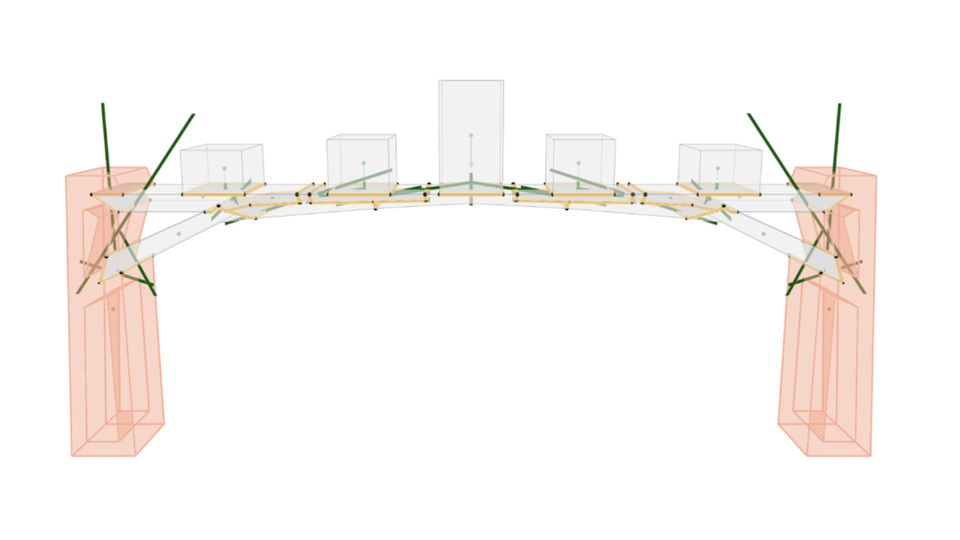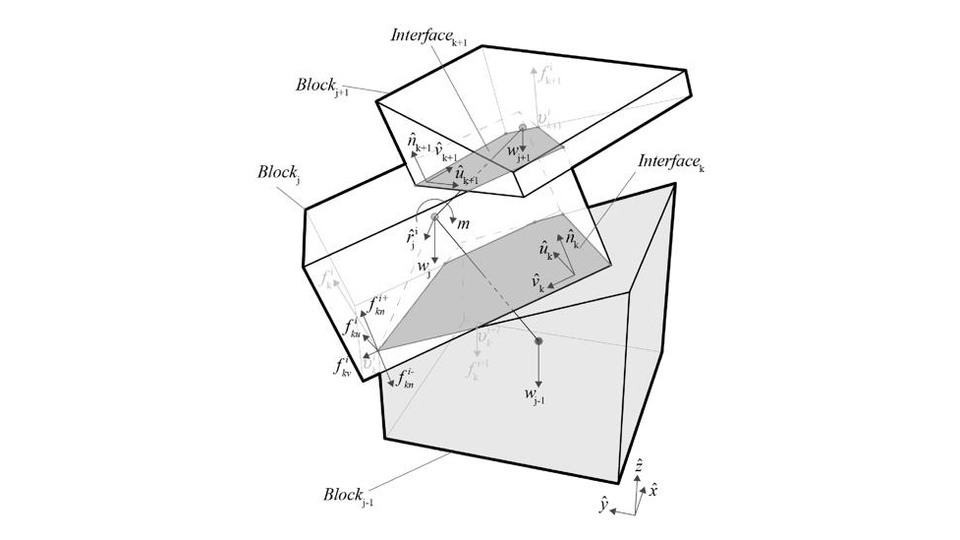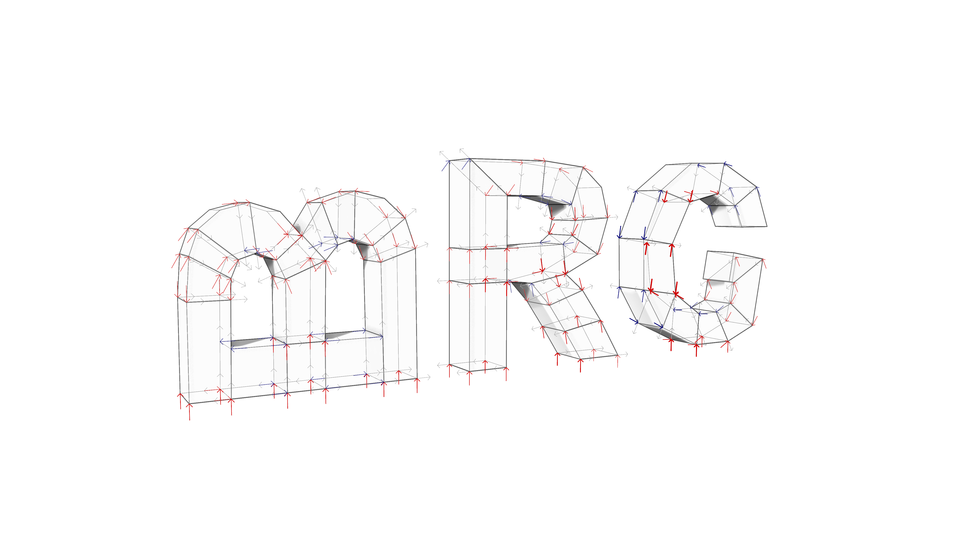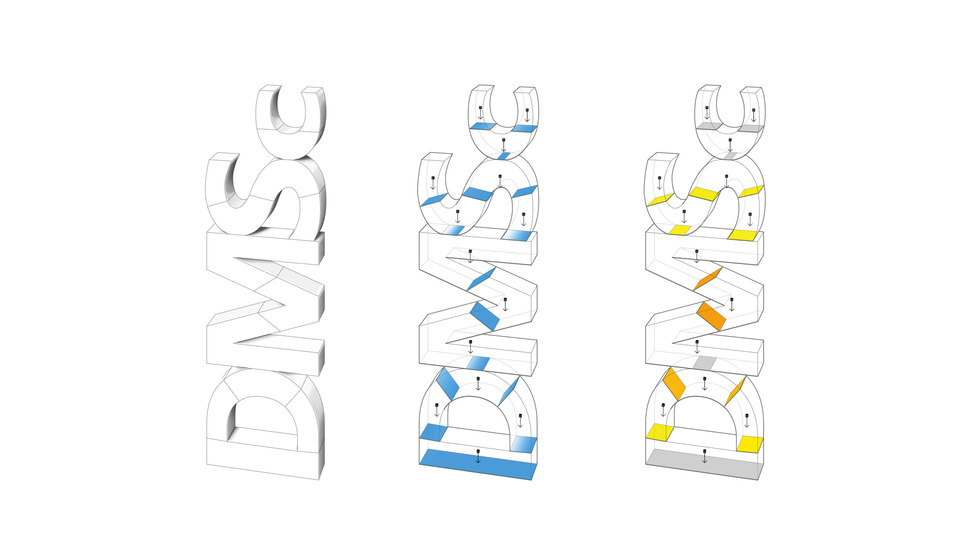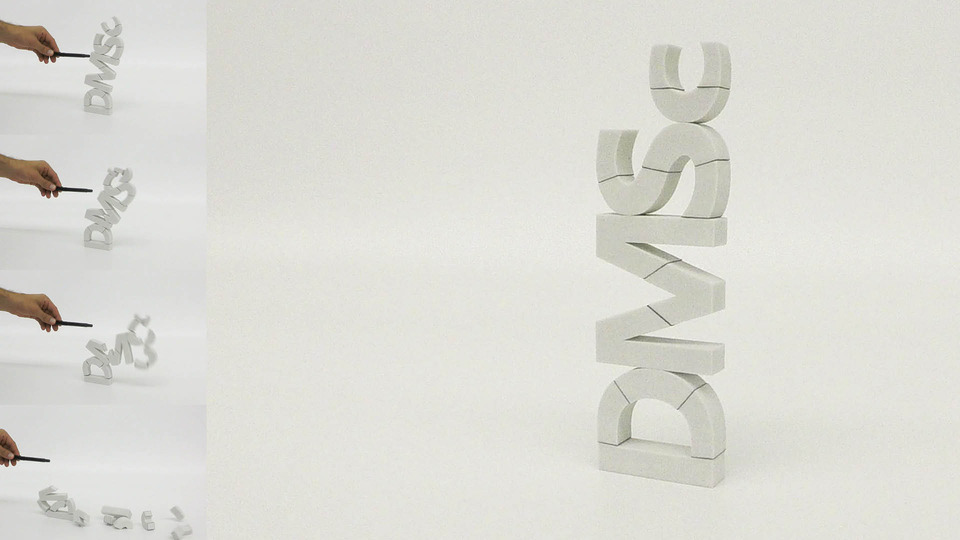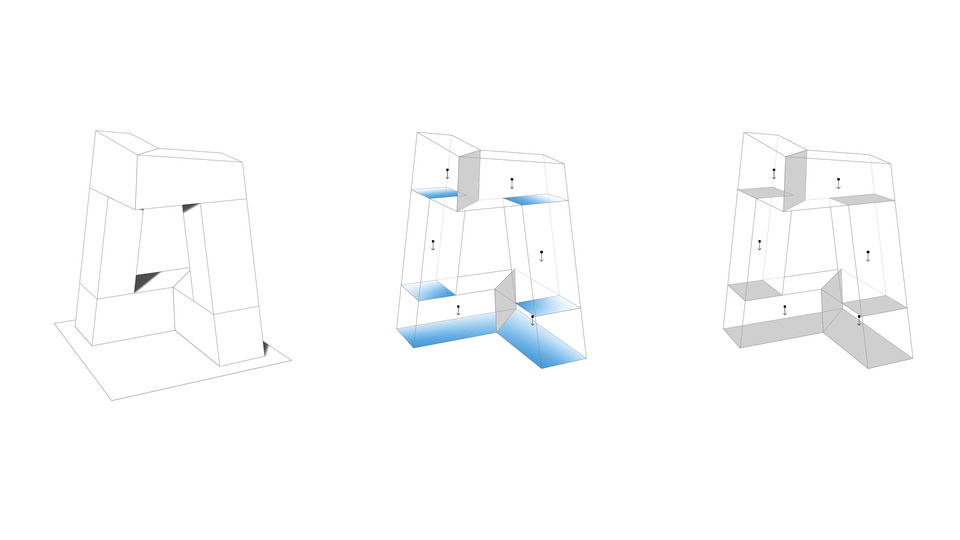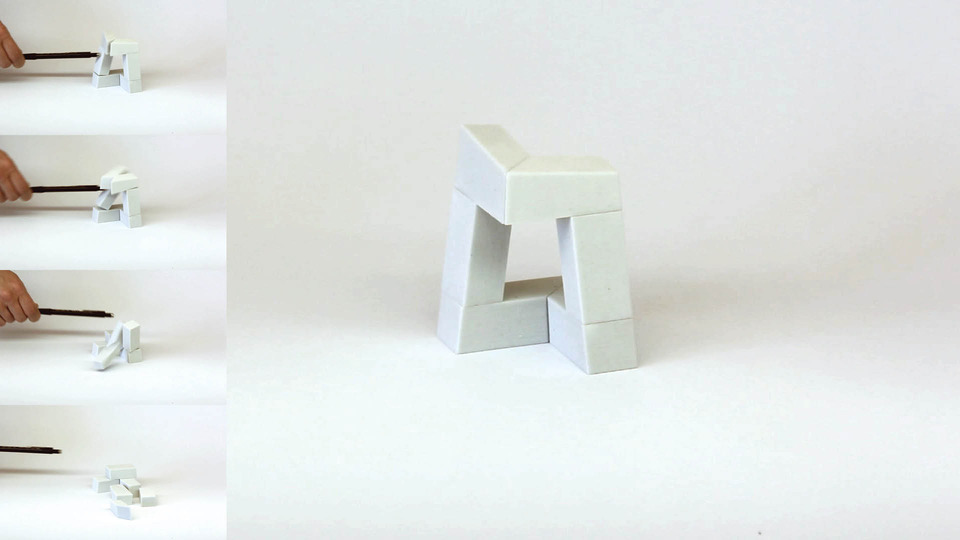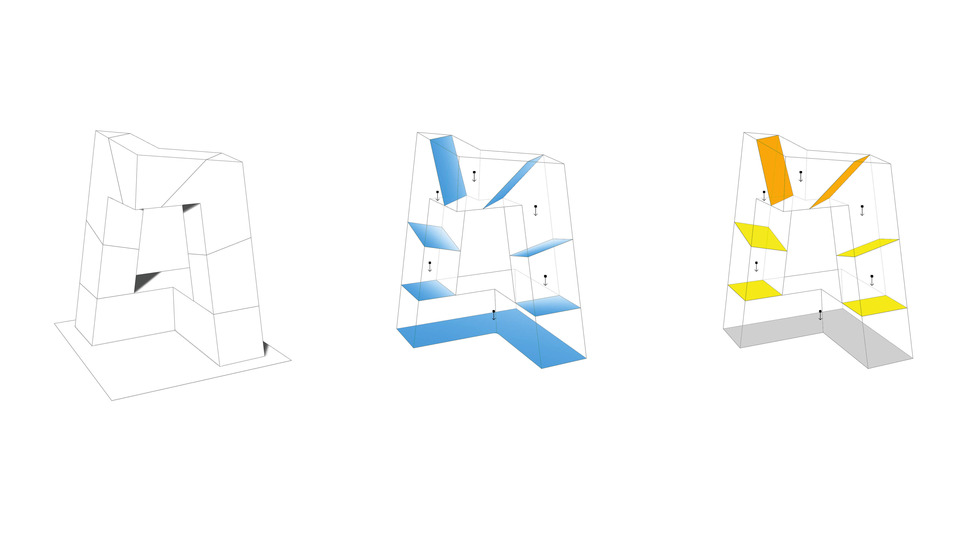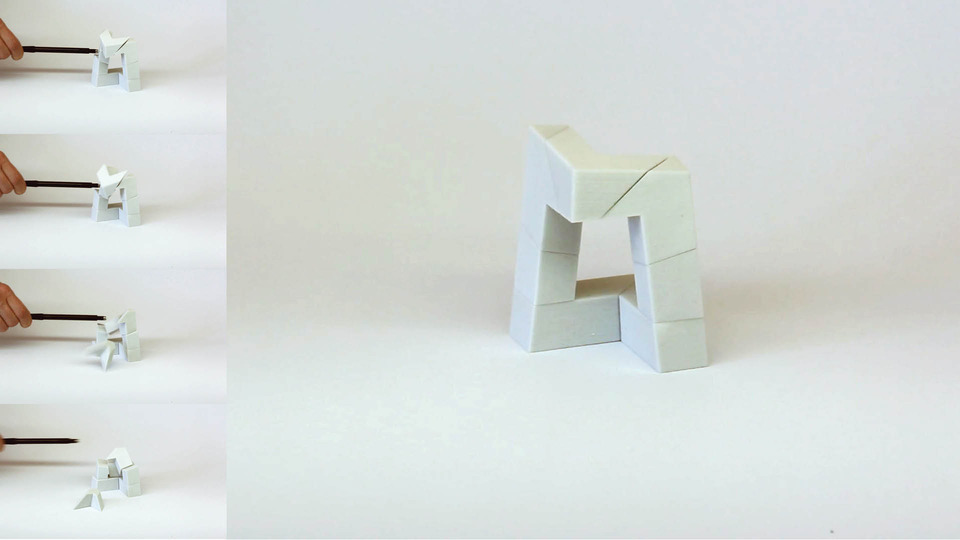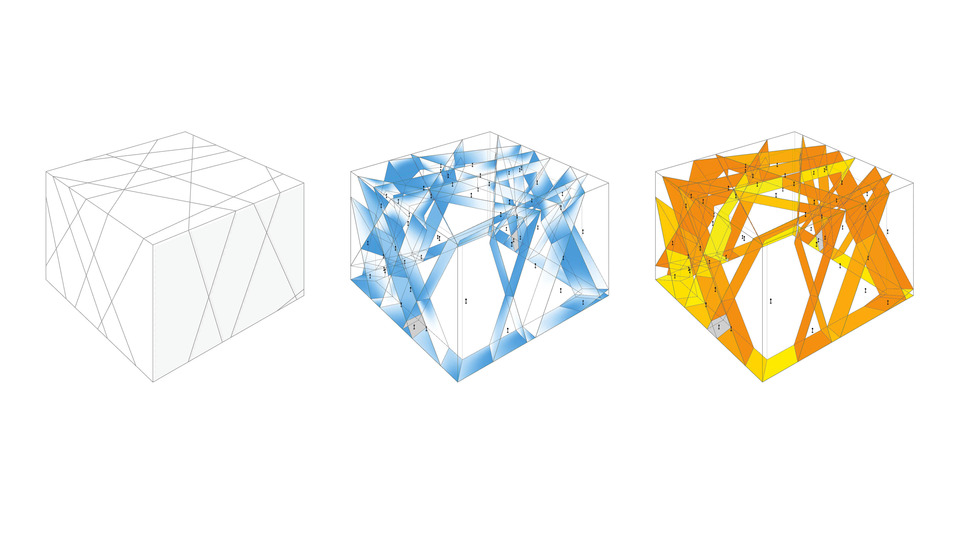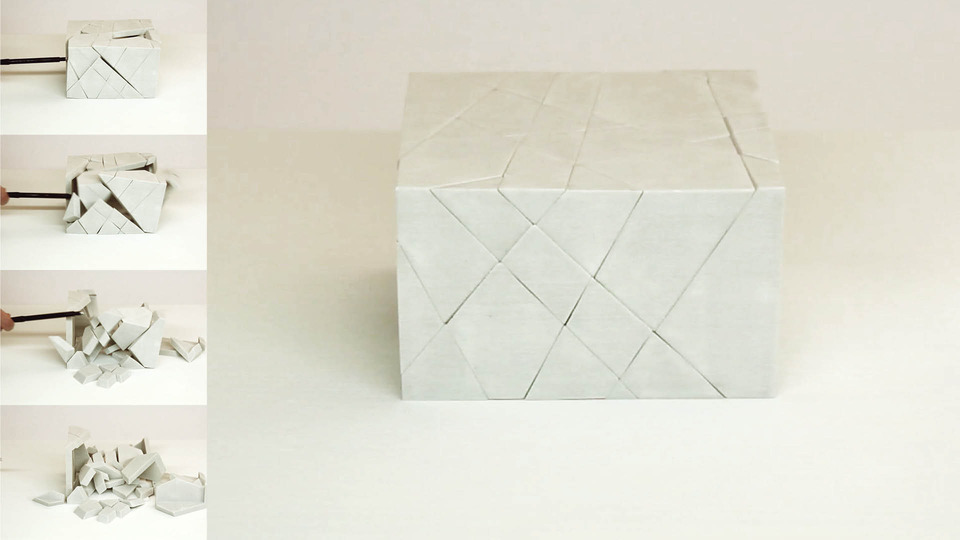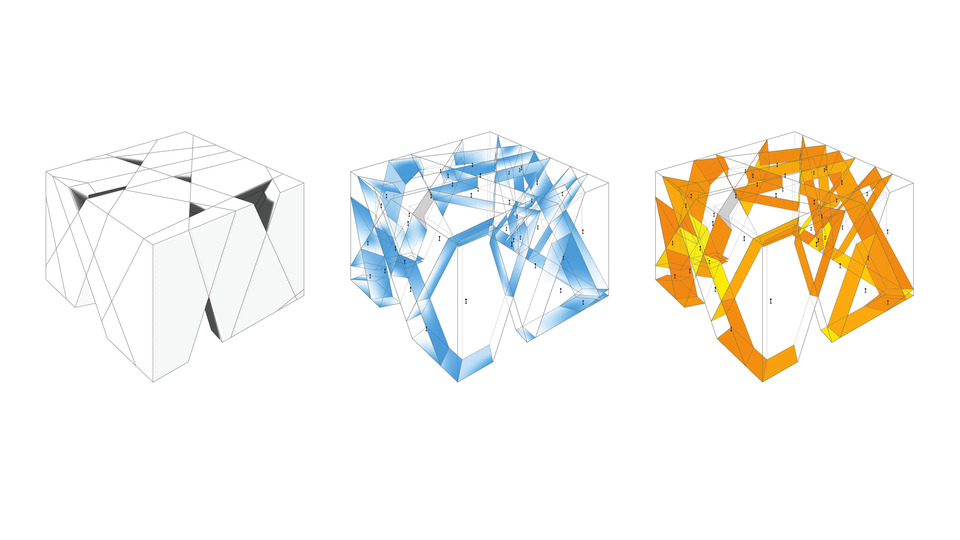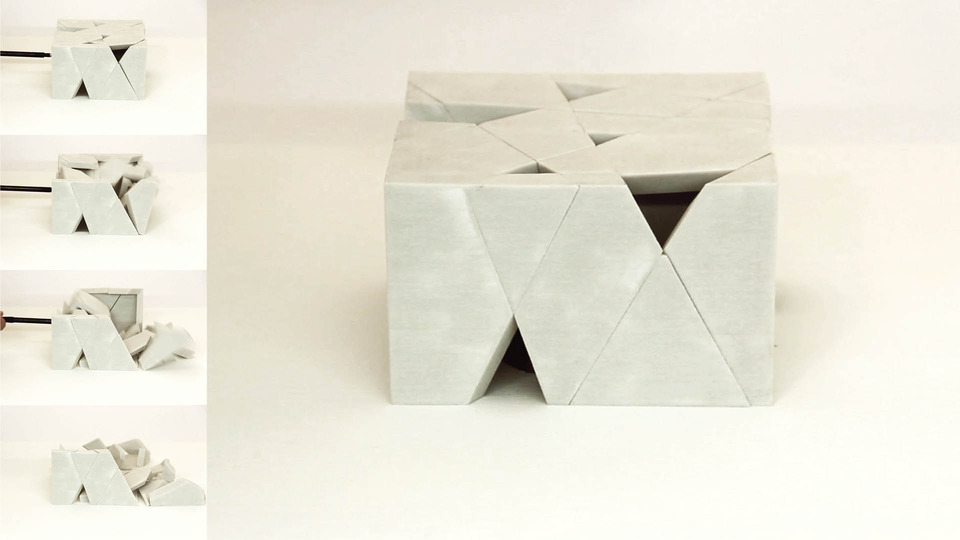More info
This project is part of the National Centre of Competence in Research (NCCR) "Digital Fabrication", which focuses on the development of highly informed and environmentally sound innovative assemblies of construction materials. This research "Equilibrium design of discrete-element assemblies" is concerned with structural design of discrete-element assemblies such as unreinforced masonry, taking into account constraints imposed by digital fabrication and automated assembly processes. It focuses on the design of structurally informed prefabricated elements and the development of efficient assembly strategies.
Recent advances in digital fabrication and on-site construction, especially large scale 3d-printing, additive robotic fabrication, and assembly technologies, have changed manufacturing and handling of prefabricated modules significantly. These novel fabrication and construction methods create new possibilities for the fabrication of highly customised individual units and the realisation of complex, assembled architectural geometries.
However, currently there are no structural design methods or tools available that address the specific challenges of designing such discrete element assemblies, their units, or their connections. Some out of many challenges are, for instance, to address complicated element geometry, to considerate the resulting complex contacts and interfaces, to keep the connections between the elements simple, and the actual construction of such assemblies.
The objective of this research is the investigation of design methods and techniques that tackles those specific challenges. Two scenarios will be addressed: 1) the design of assemblies from given units, and 2) the discretisation of given geometries into structurally feasible assemblies. This will be achieved through the development of a computational framework. The research tackles aspects of stability, assembly, and structural optimization and aims for the integration of those constraints into the architectural design process.

